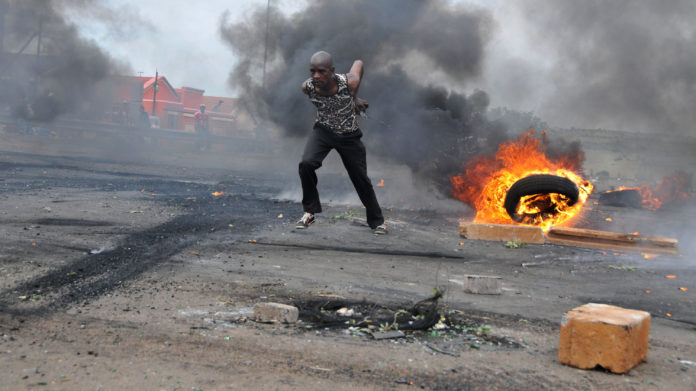
RICHARDS Bay Minerals (RBM) would not reopen on Monday as previously reported because the safety of employees had not yet been guaranteed.
In the statement, RBM MD Werner Duvenhage said that while discussions regarding the safety of employees and assets were progressing, there were still “fundamental milestones” that had to be met. The statement was issued by Rio Tinto, the Anglo-Australian mining group which has a 74% stake in the KwaZulu-Natal (KZN) province mine.
“To this regard, we are not likely to resume our operations until these issues are resolved. We need assurance on the guaranteed safety of our employees and an immediate stoppage of attacks directed at our operations and assets,” said Duvenhage.
Rio Tinto shut RBM on June 30 and declared force majeure on customer contracts owing to the deteriorating security at the minerals sands mine.
Security problems have plagued the operations for at least the last two years. In May, RBM’s GM, Nico Swart, was shot dead whilst travelling to work. Earlier this month, a group of community members arrived at the mine and burnt four machines.
Sunday’s statement comes against a backdrop of heightened tension in the KZN and Gauteng provinces where protests related to the imprisonment of former president Jacob Zuma have deteriorated into looting and violent damage to property. Three police officers have been shot whilst 18 people have been arrested in Gauteng. A further 37 people have been arrested in KZN at the time of writing.
According to reports last week in the local KZN press, crisis talks between Rio Tinto CEO, Jakob Stausholm and Cyril Ramaphosa, the President of South Africa, had resulted in a deal that would see RBM reopened.
In terms of the deal, RBM had agreed to reserve at least 40% of the currently available general worker jobs for members of the Sokhulu community with an ultimate target of reaching 50% employment.
RBM and the Sokhulu community had found common ground on “fundamental issues” including that RBM will afford more job opportunities to people from Sokhulu Community as guided by the Labour Relations Act, said KZN Premier, Sihle Zikalala.
The community had raised other concerns during the meeting including the environmental risks posed by RBM’s operations in the region.
Stakeholders represented included Inkosi of KwaSokhulu, members of the Traditional Council, youth representatives from KwaSokhulu, and regional mayors as well as RBM executives and government’s provincial and national departmental officials.











